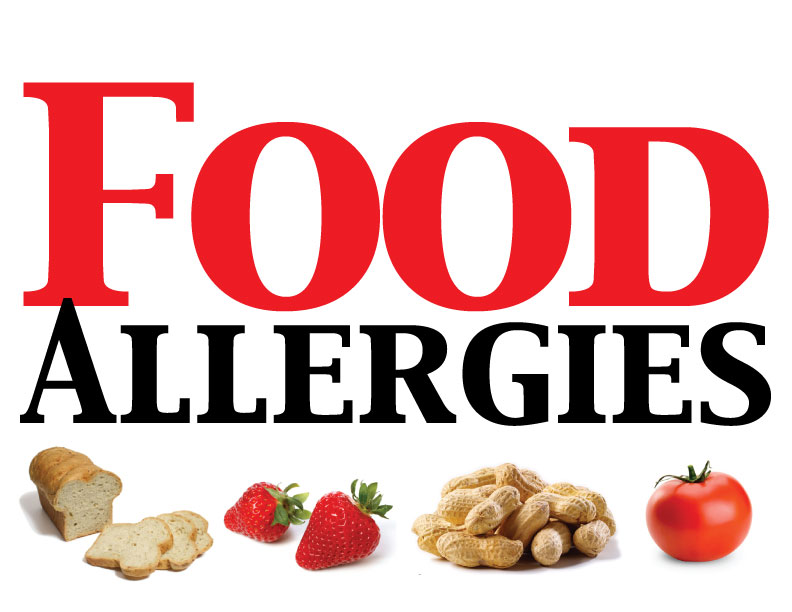Quebec restaurant incident shows need to take food allergies seriously

It seems like the number of people with food allergies is on the rise. And yet few Canadians understand the crucial difference between one person’s sensitivity to gluten and another’s life- threatening food allergy, according to several experts in the field. And that desensitization helps explain why restaurant patrons, such as the Quebec man who recently ended up in a coma after being served salmon tartare instead of beef tartare, continue to be exposed to foods that could kill them.
“Many people say they have a food allergy,” said Allan Becker, a pediatric allergist at the University of Manitoba. “And only a portion of those individuals actually truly have a classic food allergy that has a risk for anaphylaxis.”
This week, Quebec police arrested a 22-year-old waiter from the restaurant in Sherbrooke, Que., where the man, who has a severe allergy to seafood, was served salmon in May. Police are recommending criminal charges.
Police said Simon-Pierre Canuel had disclosed his allergy to the waiter more than once. He did not have his epinephrine auto-injector (often referred to by one of the more common brand names, EpiPen) with him, and had to be hospitalized.
While it was “irresponsible” to be in a public place without an EpiPen, Dr. Becker said he agrees that this type of incident needs to be taken seriously. Too often it is not, because many people believe “allergies” refers to sensitivities or aversions.
“Unless you have directly been involved in seeing anaphylaxis occur, you think of it as not being a very important thing,” he said.
The number of people claiming to have food allergies has risen in recent years, he said. For instance, many naturopaths will analyze a client’s blood and tell them they are allergic to wheat or dairy when they are not, Dr. Becker said.
The actual rates of people with true life-threatening allergies is relatively small. According to a 2015 study, about one in 13 Canadians has a serious food allergy.
Some of the most common allergens include peanuts, tree nuts, fish, shellfish, sesame and milk. But a 2010 survey found that Canadians believe the number is much higher – around 30 per cent.
Susan Elliott, a medical geographer at the University of Waterloo who was part of the team conducting the research, said widespread misuse of terms such as “allergic” contributes to the problem.
“You might say it’s an allergy so it’s taken more seriously. The servers actually get quite confused as to what’s an allergy and what’s not,” she said.
She is working on a new survey to study whether allergies are on the increase.
Prof. Elliott is working with the Allergy, Genes and Environment Network, a research body, to develop a national strategy to help minimize the risks to people with serious allergies. Part of that strategy could be for restaurants to be required to have epinephrine auto-injectors and ensure at least one staff member is trained to use them.
In 2014, the Ontario city of Hamilton launched a project to ensure all its eateries have an epinephrine auto-injector on site in case a customer suffers anaphylactic shock. The decision was made after the death of 12-year-old Maia Gallo, who had a severe allergic reaction after eating ice cream at a mall in Burlington, Ont.
Prof. Elliott said more should be done to ensure schools and other public facilities have the life-saving devices, especially because their high cost – about $130 each in Ontario – means some people may not be able to afford them.
Source: http://www.theglobeandmail.com
Image Source: http://barfblog.com/wp-content/uploads/2016/04/food-allergies-image.jpg
Vocabulary Words:
1. On the rise - (idiom) increasing in frequency or intensity
2. Disclose - (verb) to give somebody information about something, especially something that was previously secret
3. Aversion - (noun) a strong feeling of not liking somebody/something
4. Anaphylaxis - (noun) an extreme allergic reaction to something that you eat or touch
5. On site - (adj and adv) taking place or situated on a particular site or premises
Discussion Questions:
1. Why is it important to ask guests about food allergies before taking their orders?
2. Have you ever experienced guests having allergic reaction to food? What happened and how did you react?
3. What on-site medical facilities or equipment do you have for emergency situations like the one mentioned in the article?
4. Do you think employees should have proper life-saving trainings to respond to emergencies? Why or why not?